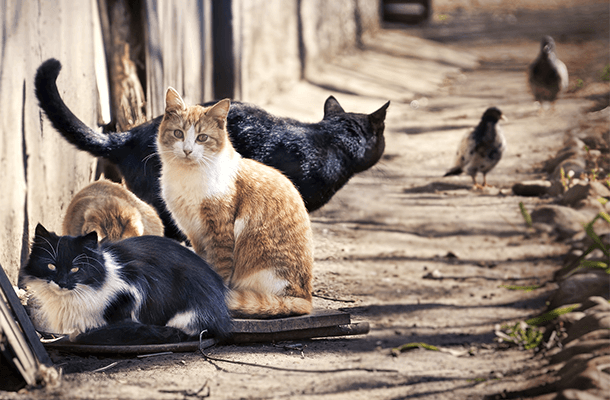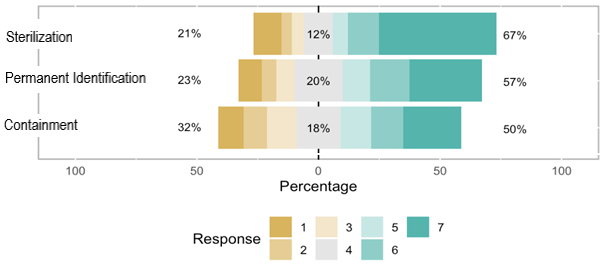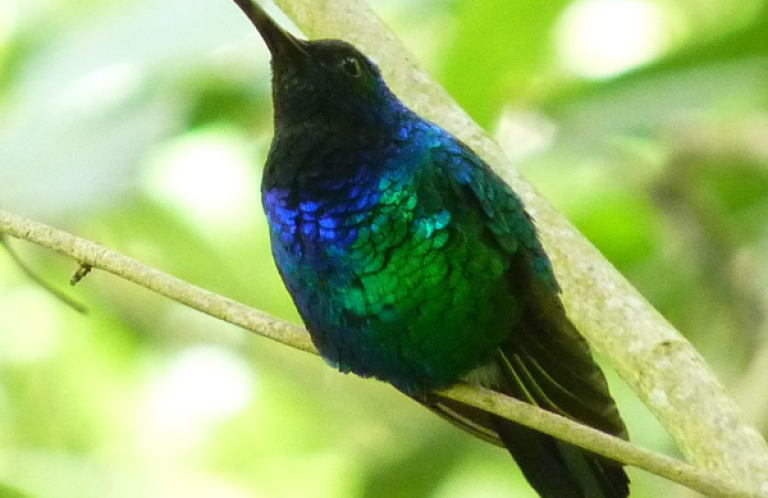U.S. Public Poll Finds Strong Support for Domestic Cat Management

An ABC poll indicates that U.S. residents favor domestic cat management. Photo by LedyX/Shutterstock
A poll conducted in 2019 by American Bird Conservancy (ABC) indicates that a majority of U.S. residents favor management of domestic cats (Felis catus). In a survey of more than 2,000 individuals across the U.S., a majority of respondents supported permanent identification and sterilization, and half favored keeping cats indoors. Not only did they support these behaviors but a substantial portion of respondents strongly agreed with them.
“These data indicate that most Americans support responsible pet ownership behaviors,” said Grant Sizemore, ABC's Director of Invasive Species Programs. “It's time that local governments supported these practices as well, by reinforcing them in local ordinances.”
ABC's Cats Indoors program advocates for keeping domestic cats safely contained, whether indoors, on a leash, or in an outdoor enclosure such as a catio. Such practices benefit cats, wildlife, and people and can help control the ballooning cat population. The U.S. pet cat population tripled from 1970 to 2010.
The Cats Indoors program has developed a model ordinance that local governments can use as a guide to update their laws for companion animals.

Survey response distribution for 2,120 U.S. residents regarding domestic cat (Felis catus) management. Respondents were asked to rate their level of agreement/disagreement with statements concerning cat sterilization, permanent identification, and keeping cats contained. 1 = strongly disagree, 2 = moderately disagree, 3 = slightly disagree, 4 = neither agree nor disagree, 5 = slightly agree, 6 = moderately agree, 7 = strongly agree
Substantial problems arise when pet cats are permitted to roam outdoors. Cats are the largest direct source of mortality to birds in the U.S. and Canada and annually kill an estimated 2.4 billion birds in the U.S. alone. Outdoor cats are also a vector for the transmission of parasites and diseases. Cats are the top carrier of rabies among domestic animals in the U.S. and are disproportionately more likely to expose people to the fatal disease than wildlife.
Cat feces are also a serious environmental contaminant, due in part to the role that cats play as a host for the parasite Toxoplasma gondii, which causes toxoplasmosis and is the reason why pregnant women are advised not to change cat litter.
Practicing responsible cat ownership behaviors goes a long way toward supporting cat health, wildlife conservation, and reduced public health risks. Microchips, sterilization, and keeping cats indoors are widely regarded as beneficial practices and supported by the American Veterinary Medical Association.
“Research indicates that outdoor cats are nearly three times more likely to be infected with parasites than indoor cats, and that microchips vastly increase the chances of a cat being returned to its owner,” said Sizemore. “It's time to treat cats like we treat dogs: responsibly.”
###
Media Contact: Jordan Rutter, Director of Public Relations, 202-888-7472 | jerutter@abcbirds.org
Expert Contact: Grant Sizemore, Director of Invasive Species Programs, 202-888-7480 | gsizemore@abcbirds.org
American Bird Conservancy is a nonprofit organization dedicated to conserving birds and their habitats throughout the Americas. With an emphasis on achieving results and working in partnership, we take on the greatest problems facing birds today, innovating and building on rapid advancements in science to halt extinctions, protect habitats, eliminate threats, and build capacity for bird conservation. Find us on abcbirds.org, Facebook, Instagram, and Twitter (@ABCbirds).


















































